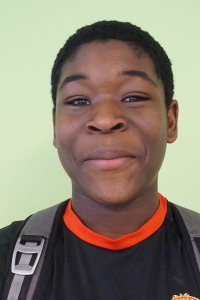As school students we are given grades to show how well we’ve done in classes, usually to show if we are actually participating or slacking off. At least thats what parents see it as. Most parents expect a passing grade such as an A or a B, because they believe that it always possible and if you don’t achieve these goals they set of you, they assume you didn’t try your hardest. In the past parents blamed “bad” grades on the teachers when it is the students work as well.
As students of Science Leadership Academy we are given the choice of a different approach of the dreaded report card conference.
First we don’t see grades as Accomplished, Basic, Common, Deteriorate, and Failed. We look at grades as a scale of understanding the criteria.
Another thing about SLA is that it may help you or not is the way we grade entirely. When it comes time for the grades to be recorded on the report card they can only be shown as 95, 85, 75, 65, and 55. Depending on your grade, if its in between two grades then is will either be bumped down or bumped up.
What works with report card conferences is that you run the conference, not your advisor or parents. So you are given the voice you might have not been given through grade school. We also give you narratives about you from the teachers of each of your classes in advance, so you can come up on how you want the conversation to run. They tell how exactly you are in class, they say the good and the bad. Giving what you did good at and what you can improve on. Make a plan to show how you can do better and make sure you stick to that plan. You want to look like an excellent student and not a hypocrite.
What I tend to do when given my narratives is build a key. Usually what my key insist of is: What I Did Good, What I Did Bad, What I Can Do Better, What Can I Continue, & Tips For My Self. What I usually do to assure my parents agree with what I highlighted is think how they would think and think of what they would argue. Just as our fellow 10th grade student Michaela Peterson said when I interviewed her about her approaches of the interviews her words were “Stay in control. The conference is lead by you, not about you. Don’t let anyone usurp your power.”
Another student I interviewed was Ellie Kredie and what she had to say was “Be confident! Talk to both your advisor and parent before the conference, letting them know of your grades. Also, just remember that this is a time to get to know your advisor and allow your family to get to know your advisor as well.” just as Ellie said you must not let everything get to you.
One thing you should make sure you do is talk to your advisor. Tell him or her about certain things (if there are such things) that your parents will try to focus on and if you need your advisor to help you keep them on track. Such as your parents might look at the negative of what the results are and you want your advisor to help you show the positive.
Remember its not the end of the world if you have a bad grade it just means you need a little bit of help to get you on the right track.













